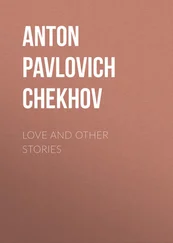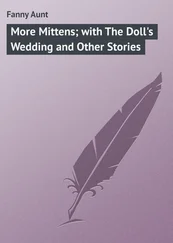“A large mass grave was recently discovered outside of Grozny, no?” the translator asks.
“Yes, an exciting discovery. It will be a major tourist attraction for archaeology enthusiasts.”
The translator frowns. “Isn’t it a crime scene?”
“Don’t be ridiculous. It’s millions of years old.”
“But weren’t the bodies found shot execution-style?” he insists.
I shrug him off. Who am I to answer for the barbarities of prehistoric man?
The translator nods to a small mountain range of rubble bulldozed just over the city limits. “What’s that?”
“Suburbs,” I say.
We pass backhoes, dump trucks, and jackhammers through the metallic dissonance of reconstruction that comes as a welcome song after months of screaming shells. The cranes are the tallest man-made structures I have ever seen in person. I drive to the central square, once the hub of municipal government, now a brown field debossed with earthmover tracks. Nadya once lived just down the road. The oilmen climb out and frown at each other, then at the translator, and then finally at me.
Turning to the northeast, I point at a strip of blue sky wedged between two fat cumuli. “That was Hotel Kavkaz. ABBA stayed two nights. I carried their guitars when I worked there one summer. Next to that, picture an apartment block. Before ninety-one only party members lived there and after ninety-one only criminals. No one moved in or out.”
None of the oilmen smile. The translator leans to me and whispers, “You are aware, of course, that these three gentlemen are esteemed members of the Communist Party of China.”
“It’s okay, I’m a limo driver.”
The translator stares blankly.
“Lloyd from Dumb and Dumber ?”
Nothing.
“Jim Carrey. A brilliant actor who embodies the senselessness of our era,” I explain.
The interpreter doesn’t bother translating. I continue to draw a map of the square by narration, but the oilmen can’t see what I see. They see only an empty square demolished by bomb and bulldozer.
“Come, comrades, use your imagination,” I urge, but they return to the Mercedes, and I am talking only to the translator, and then he returns to the Mercedes, and I am talking only to myself.
THREE months earlier, the Interior minister told me his idea. The proposition was ludicrous but I listened with the blank-faced complacency I had perfected throughout my twenty-three years as a public servant.
“The United Nations has named Grozny the most devastated city on earth,” the minister explained between bites of moist trout.
I wasn’t sure of the proper response, so I gave him my lukewarm congratulations.
“Yes, well, always nice to receive recognition, I suppose. But as you might imagine, we have an image problem.”
He loomed over his desk in a high-backed executive chair, while across from him I listened from an odd, leggy stool designed to make its occupant struggle to stay upright before the minister. The minister’s path had first crossed mine fifteen years earlier, when he had sought my advice regarding a recently painted portrait of him and his sons, and I had sought his regarding a dacha near my home village. He’d had two sons then. The first emigrated before the most recent war to attend an American pharmacology school, now worked at a very important drugstore in Muskegon, Michigan. I don’t know what happened to the second, but the lack of ministerial boasting serves as a death knell. The portrait, which still hung on the far wall, depicted the minister and his sons in tall leather boots, baggy trousers, long woolen chokhas , and sheepskin papakhas heroically bestriding the carcass of a slain brown bear that bore a striking resemblance to Yeltsin.
“Foreign investment,” the minister continued. “Most others don’t agree with me, but I believe we need to attract capital unconnected to the Kremlin if we’re to achieve a degree of economic autonomy, and holding the record for the world’s largest ruin isn’t helping. Rosneft wants to sink its fangs into our oil reserves, but the Chinese will cut a better deal. Have you heard of Oleg Voronov? He’s on the Rosneft board, the fourteenth richest man in Russia, and one of the hawks who pushed for the 1994 invasion. The acquisition of Chechen oil is among his top priorities.”
The minister set down his silverware and began sorting through the little trout bones on his plate, reconstructing the skeleton of the fish he had consumed. “If we’re to entice foreign investment, we need to rebrand Chechnya as the Dubai of the Caucasus. That’s where you come in. You’re what, the director of the Museum of Regional Art?”
“Deputy director, sir.”
“That’s right, deputy director. You did fine work sending those paintings to Moscow. A real PR coup. Even British newspapers wrote about the Tretyakov exhibit.”
With a small nod, I accepted the compliment for what was the lowest point of my rut-ridden career. In 1999, Russian rockets had demolished the museum and with my staff I’d saved what I could from the ensuing fires. Soon after, I was ordered to surrender them to the Russians. When I saw that I’d been listed as co-curator of an exhibit of the rescued Chechen paintings at Moscow’s Tretyakov Gallery, I closed my lids and wondered what had happened to all the things my eyes have loved.
The minister tilted the plate over the rubbish bin and the ribs slid from the spine of the skeleton fish. “Nothing suggests stability and peace like a thriving tourism sector,” the minister said. “I think you’d be the perfect candidate to head the project.”
“With respect, sir,” I said. “I did my dissertation on nineteenth-century pastoral landscapes. I’m a scholar. This is all a bit beyond me.”
“I’ll be honest, Ruslan, for this position we need someone with three qualifications. First, he must speak English. Second, he must know enough about the culture and history of the region to show that Chechnya is much more than a recovering war zone, that we possess a rich cultural history unsullied by violence. Third, and most important, he must be that rare government man without links to human rights abuses on either side of the conflict. Do you meet these qualifications?”
“I do, sir,” I said. “But still, I’m entirely unqualified to lead a tourism initiative.”
The minister frowned. He scanned the desk for a napkin before reaching over to wipe his oily fingers on my necktie. “According to your dossier, you’ve worked in hotels.”
“When I was sixteen, I was a bellhop.”
“Well,” the minister beamed. “Then you clearly have experience in the hospitality industry.”
“In the suitcase-carrying industry.”
“Then you accept?”
I said nothing, and as is often the case with men who possess more power than wisdom, he took my silence for affirmation. “Congratulations, Ruslan. You’re head of the Grozny Tourist Bureau.” And so my future was decided, as it often is, entirely without my consent.
Office space was a valuable commodity given how few buildings were still standing, so I worked from my flat. I spent the first morning writing Tourist Bureau on a piece of cardboard. My penmanship had been honed by years of attempting to appear productive at the office. I taped the sign to the front door, but within five minutes it had disappeared. I made a new sign, then another, but the street children who lived on the landing kept stealing them. After the fifth sign, I went to the kitchen and drank the vodka bottle the minister had sent over in celebration until I passed out in tears on the floor. So ended my first day as Tourist Bureau chief.
Over the following weeks, I designed a brochure. The central question was how to trick tourists into coming to Grozny voluntarily. For inspiration, I studied pamphlets from the tourist bureaus of other urban hellscapes: Baghdad, Pyongyang, Houston. From them I learned to be lavishly adjectival, to treat prospective tourists as semiliterate gluttons, and to impute reports of kidnapping, slavery, and terrorism to the slander of foreign provocateurs. Thrilled by my discoveries, I tucked a notebook into my shirt pocket and raced into the street. Upon seeing the empty space where an apartment block once stood, I wrote wide and unobstructed skies! I watched jubilantly as a pack of feral dogs chased a man, and wrote unexpected encounters with natural wildlife! The city bazaar hummed with the sales of looted industrial equipment, humanitarian aid rations, and munitions suited for every occasion: unparalleled shopping opportunities at the Grozny bazaar! Even before I reached the first checkpoint, I had scribbled first-rate security! The copy wrote itself; the real challenge was finding images that substantiated it. After all, the siege had remapped the city. Debris rerouted roads through abandoned warehouses — once I found a traffic jam on a factory floor — and what was not rerouted was razed. A photograph of the present city would send a cannonball through my verbiage-fortified illusion of a romantic paradise for heterosexual couples. But I couldn’t find suitable photographs of prewar Grozny within the destroyed archives. In the end, I forwent photographs altogether and instead used January, April, and August of the 1984 Grozny Museum of Regional Art calendar for visuals. In the three nineteenth-century landscapes, swallows frolic over ripening grapevines and a shepherd minds his flock beneath a sunset; they portray a land untouched by war or communism and beside them my descriptions of a picturesque Chechnya do not seem entirely inappropriate.
Читать дальше












